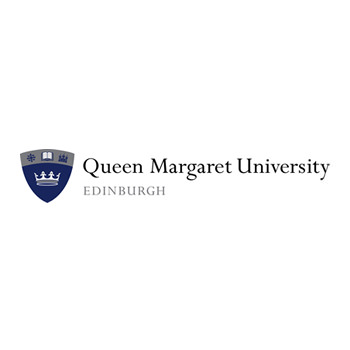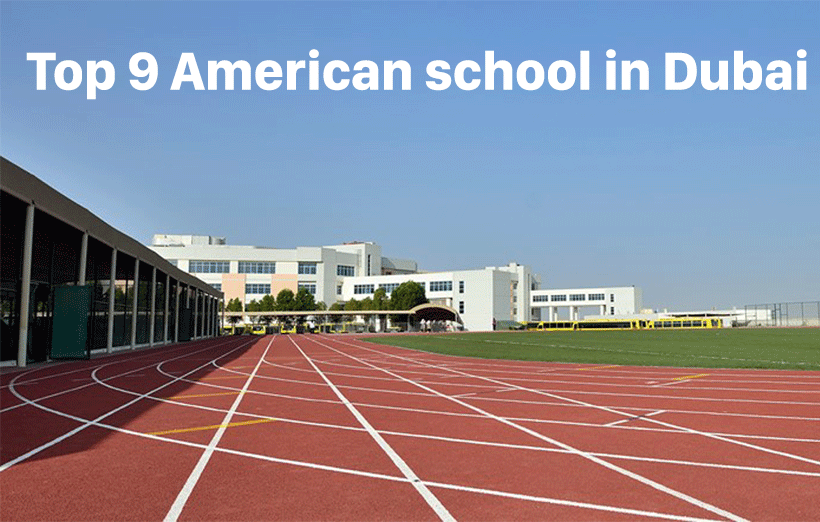Queen Margaret University, Edinburgh

Founded: 1875
Address: Edinburgh, Scotland, United Kingdom
Phone: +44 131 4740000
Address: Edinburgh, Scotland, United Kingdom
Phone: +44 131 4740000
Here you find out Queen Margaret University, Edinburgh complete information about fees, location, degree Queen Margaret University, Edinburgh offers, number, website, and much more. Queen Margaret University, Edinburgh is a leading university in Edinburgh - Scotland.
You can also find out jobs at Queen Margaret University, Edinburgh for students, teachers, and professors. We also update the database for an internship at Queen Margaret University, Edinburgh for students.
Queen Margaret University, Edinburgh is committed to providing thoroughly relevant teaching and research. Our research is focused on making a real practical impact on everyday life, and our courses are designed to produce well prepared, well rounded and flexible graduates. We have widely recognised expertise in the areas of health and rehabilitation; sustainable business and creativity and cult...ure. In this section of our website, you can find out about the history of the university, along with information about governance, the Principal and Vice-Chancellor, the senior management team and our collaborative partners. You will also find practical information including travel and transport information and policy and strategy documents.
Our mission is to foster intellectual capital with both a theoretical and practical focus, giving students and staff the confidence to make a real difference to the world around them. We are known not only for excellent, relevant teaching, research and knowledge exchange but also for the care and respect we give our students, staff and partners. As a thriving campus university we strive to create a community without borders, helping to improve people"s lives locally, nationally and internationally. We are ambitious and enterprising, and, in everything we do, we are committed to social justice.
At Queen Margaret University, Edinburgh, our vision is to be a university of ideas and influence.
Outward looking, we are responsive to the changing needs of society and make a real difference in the world. We have widely recognised expertise in health & rehabilitation; sustainable business and creativity & culture.
Our research and knowledge exchange work is focused on making a real practical impact on everyday life.
In this section of our website, you can find out about the history of the university, along with information about governance, the Principal and Vice-Chancellor, the senior management team and our collaborative partners.
We have a proud history of achievement and progress extending for well over a century.
Founded in 1875, we have always been driven by the highest ideals and purposes, focusing on contributing in practical ways to improving people’s lives and serving the community.
The institution now named Queen Margaret University was established as the Edinburgh School of Cookery in 1875.
This institution emerged in a period that was notable for real economic progress, but also characterised by many social and economic divisions and inequalities, and widespread poverty. The School was established as a voluntary effort to address two key problems facing society at the time:
(1) To provide educational opportunities for women. The institution’s founders were part of the U.K.-wide mid Victorian "Women"s Movement", which was a campaign for better education and improved career opportunities for females. A main element of this campaign was directed at securing equality of opportunity for school girls, but another purpose was to open up post-school education at both university and technical levels. To this point young women had been excluded from higher and technical education, with an inevitable consequence being widespread female poverty. (One of the key leaders of the women"s movement was Queen Victoria"s fourth daughter, Princess Louise, Duchess of Argyll, and she became the School"s leading patron.)
(2) The need to bring about an improvement in diets, particularly the diets of working class families.
The original lectures took place (before huge audiences) in the Royal Museum in Edinburgh’s Chambers Street, but it was at first peripatetic in nature, in that teaching staff went out with mobile gas and paraffin cooking equipment to give programmes of public lectures and demonstrations all over Britain, from the Shetlands to the Channel Islands. The first generation of lecturers were almost all young women aged in their early twenties and almost everywhere they went they drew large gatherings of women eager for instruction.
The first permanent site was in Shandwick Place, where the institution was based from 1877 to 1891. At this time the institution also operated a branch in Manchester to provide lectures to industrial communities throughout the north of England. As was intended by the founders, this branch eventually became independent and it is now a constituent part of Manchester Metropolitan University.
The main founders of the school were Christian Guthrie Wright and Louisa Stevenson (Louisa was sister of Flora Stevenson, the first female Chair of the Edinburgh School Board). These women were also largely responsible for leading the campaign to secure the admission of females to the University of Edinburgh. In setting up the School of Cookery, they were backed by various interest groups, but particularly enlightened local medical practitioners and Church leaders.
In 1879 Guthrie Wright collaborated with the scientist Sir Thomas Dyke Acland and two "distinguished medical doctors" (probably Dr Henry Littlejohn - Edinburgh"s first Medical Officer of Health - and Dr Alexander Wood) to produce her School Cookery Book. Published as part of a series of science primers under the general editorship of the naturalist, Professor T.H. Huxley, and including texts by such individuals as Sir H. E. Roscoe (chemistry), Sir Archibald Geikie (geography and geology) and W. Stanley Jevons (logic and political economy), Guthrie Wright"s book effectively represented the state of knowledge at the time in respect of food. It subsequently ran into many editions.
About 1887 Guthrie Wright Louisa Stevenson and Princess Louise also collaborated in developing in Scotland Queen Victoria"s Jubilee Institute for Nurses. Also an entirely voluntary body the organisation established training and residential facilities in Edinburgh and Glasgow to prepare nurses to provide care to the sick poor in their own homes. Effectively this was the beginning of the district nursing service and it was a vital initiative in the period prior to the creation of the National Health Service.
In 1891 the School moved to Atholl Crescent in Edinburgh and over the next fifty years or so gradually extended its premises along the Crescent. At different times it also had properties in other locations in Edinburgh, including Rothesay Terrace, and it ran industrial classes in the India Buildings in the city’s Victoria Street.
From 1891 the School developed extended courses and offered places to residential students. It received no public funding and had to operate on the basis of subscriptions from supporters and the fees of students. The fees paid by middle class students training to be schoolteachers and housekeepers were used to subsidise classes for hundreds of working class teenagers and adults.
For many years the authorities resisted the efforts of Guthrie Wright and her colleagues to have cookery classes introduced into the ordinary public day schools. (Male dominated school boards did not want to find the money to install cooking equipment and did not want to pay for the ingredients that the children would require to use.) However, medical studies in the early 1900s showed that thousands of urban children all over the U.K. were desperately undernourished and unhealthy.
One of the most influential pioneering investigations was conducted by the Medical Inspector at the Scottish Office, Sir W. Leslie MacKenzie and his wife Helen, a lecturer in the School (and, later, Chairman of Governors). The MacKenzies showed conclusively that children attending schools in the poorest parts of Edinburgh were much smaller and lighter than children from middle class areas and that astonishingly high proportions suffered from significant medical defects. The main causes of the problems were identified as poor housing, overcrowding, lack of adequate nutrition and ignorance of food, health, hygiene and child care among mothers.
Following two Royal Commissions to which the MacKenzies reported, from 1908 school children became subject to regular medical inspection. But in addition, cookery classes and physical education were both made compulsory in state schools and in 1909 what had now become the Edinburgh of Domestic Science was taken under direct Government control to train appropriate teachers. At this time the first professional Principal, Miss Ethel de la Cour, was appointed.
The student population grew rapidly over the next few years and the Atholl Crescent became world renowned as setting the standards for the training of domestic science teachers. Today, QMU’s vision is to be a university of ideas and influence.
Our focus on relevance - through our teaching, learning, and research and knowledge exchange work - ensures that we are responsive to the changing needs of society. We have flagship areas of expertise in health & rehabilitation; sustainable business and creativity & culture.
We aim to provide a transformative learning experience for our students, enabling them to achieve their individual goals and contribute to society. We seek to provide the optimal balance of theoretical and practical education.
We are dedicated to improving the quality of life and building the evidence based for policy and practice through our research and knowledge exchange (KE). We are recognised internationally for our high quality and relevant research, which informs practice and policy, and we measure its value by its impact and social usefulness.
Through our teaching and research, we enable people to people to heal, nurture, care and communicate. We inspire people to build businesses, find solutions to real life issues and to improve communities. We foster creativity and artistic expression, building social capital. Our graduates and staff can found in influential roles across the world, influencing policy and enhancing society, culture and the economy.
You can also find out jobs at Queen Margaret University, Edinburgh for students, teachers, and professors. We also update the database for an internship at Queen Margaret University, Edinburgh for students.
Queen Margaret University, Edinburgh is committed to providing thoroughly relevant teaching and research. Our research is focused on making a real practical impact on everyday life, and our courses are designed to produce well prepared, well rounded and flexible graduates. We have widely recognised expertise in the areas of health and rehabilitation; sustainable business and creativity and cult...ure. In this section of our website, you can find out about the history of the university, along with information about governance, the Principal and Vice-Chancellor, the senior management team and our collaborative partners. You will also find practical information including travel and transport information and policy and strategy documents.
Our mission is to foster intellectual capital with both a theoretical and practical focus, giving students and staff the confidence to make a real difference to the world around them. We are known not only for excellent, relevant teaching, research and knowledge exchange but also for the care and respect we give our students, staff and partners. As a thriving campus university we strive to create a community without borders, helping to improve people"s lives locally, nationally and internationally. We are ambitious and enterprising, and, in everything we do, we are committed to social justice.
At Queen Margaret University, Edinburgh, our vision is to be a university of ideas and influence.
Outward looking, we are responsive to the changing needs of society and make a real difference in the world. We have widely recognised expertise in health & rehabilitation; sustainable business and creativity & culture.
Our research and knowledge exchange work is focused on making a real practical impact on everyday life.
In this section of our website, you can find out about the history of the university, along with information about governance, the Principal and Vice-Chancellor, the senior management team and our collaborative partners.
We have a proud history of achievement and progress extending for well over a century.
Founded in 1875, we have always been driven by the highest ideals and purposes, focusing on contributing in practical ways to improving people’s lives and serving the community.
The institution now named Queen Margaret University was established as the Edinburgh School of Cookery in 1875.
This institution emerged in a period that was notable for real economic progress, but also characterised by many social and economic divisions and inequalities, and widespread poverty. The School was established as a voluntary effort to address two key problems facing society at the time:
(1) To provide educational opportunities for women. The institution’s founders were part of the U.K.-wide mid Victorian "Women"s Movement", which was a campaign for better education and improved career opportunities for females. A main element of this campaign was directed at securing equality of opportunity for school girls, but another purpose was to open up post-school education at both university and technical levels. To this point young women had been excluded from higher and technical education, with an inevitable consequence being widespread female poverty. (One of the key leaders of the women"s movement was Queen Victoria"s fourth daughter, Princess Louise, Duchess of Argyll, and she became the School"s leading patron.)
(2) The need to bring about an improvement in diets, particularly the diets of working class families.
The original lectures took place (before huge audiences) in the Royal Museum in Edinburgh’s Chambers Street, but it was at first peripatetic in nature, in that teaching staff went out with mobile gas and paraffin cooking equipment to give programmes of public lectures and demonstrations all over Britain, from the Shetlands to the Channel Islands. The first generation of lecturers were almost all young women aged in their early twenties and almost everywhere they went they drew large gatherings of women eager for instruction.
The first permanent site was in Shandwick Place, where the institution was based from 1877 to 1891. At this time the institution also operated a branch in Manchester to provide lectures to industrial communities throughout the north of England. As was intended by the founders, this branch eventually became independent and it is now a constituent part of Manchester Metropolitan University.
The main founders of the school were Christian Guthrie Wright and Louisa Stevenson (Louisa was sister of Flora Stevenson, the first female Chair of the Edinburgh School Board). These women were also largely responsible for leading the campaign to secure the admission of females to the University of Edinburgh. In setting up the School of Cookery, they were backed by various interest groups, but particularly enlightened local medical practitioners and Church leaders.
In 1879 Guthrie Wright collaborated with the scientist Sir Thomas Dyke Acland and two "distinguished medical doctors" (probably Dr Henry Littlejohn - Edinburgh"s first Medical Officer of Health - and Dr Alexander Wood) to produce her School Cookery Book. Published as part of a series of science primers under the general editorship of the naturalist, Professor T.H. Huxley, and including texts by such individuals as Sir H. E. Roscoe (chemistry), Sir Archibald Geikie (geography and geology) and W. Stanley Jevons (logic and political economy), Guthrie Wright"s book effectively represented the state of knowledge at the time in respect of food. It subsequently ran into many editions.
About 1887 Guthrie Wright Louisa Stevenson and Princess Louise also collaborated in developing in Scotland Queen Victoria"s Jubilee Institute for Nurses. Also an entirely voluntary body the organisation established training and residential facilities in Edinburgh and Glasgow to prepare nurses to provide care to the sick poor in their own homes. Effectively this was the beginning of the district nursing service and it was a vital initiative in the period prior to the creation of the National Health Service.
In 1891 the School moved to Atholl Crescent in Edinburgh and over the next fifty years or so gradually extended its premises along the Crescent. At different times it also had properties in other locations in Edinburgh, including Rothesay Terrace, and it ran industrial classes in the India Buildings in the city’s Victoria Street.
From 1891 the School developed extended courses and offered places to residential students. It received no public funding and had to operate on the basis of subscriptions from supporters and the fees of students. The fees paid by middle class students training to be schoolteachers and housekeepers were used to subsidise classes for hundreds of working class teenagers and adults.
For many years the authorities resisted the efforts of Guthrie Wright and her colleagues to have cookery classes introduced into the ordinary public day schools. (Male dominated school boards did not want to find the money to install cooking equipment and did not want to pay for the ingredients that the children would require to use.) However, medical studies in the early 1900s showed that thousands of urban children all over the U.K. were desperately undernourished and unhealthy.
One of the most influential pioneering investigations was conducted by the Medical Inspector at the Scottish Office, Sir W. Leslie MacKenzie and his wife Helen, a lecturer in the School (and, later, Chairman of Governors). The MacKenzies showed conclusively that children attending schools in the poorest parts of Edinburgh were much smaller and lighter than children from middle class areas and that astonishingly high proportions suffered from significant medical defects. The main causes of the problems were identified as poor housing, overcrowding, lack of adequate nutrition and ignorance of food, health, hygiene and child care among mothers.
Following two Royal Commissions to which the MacKenzies reported, from 1908 school children became subject to regular medical inspection. But in addition, cookery classes and physical education were both made compulsory in state schools and in 1909 what had now become the Edinburgh of Domestic Science was taken under direct Government control to train appropriate teachers. At this time the first professional Principal, Miss Ethel de la Cour, was appointed.
The student population grew rapidly over the next few years and the Atholl Crescent became world renowned as setting the standards for the training of domestic science teachers. Today, QMU’s vision is to be a university of ideas and influence.
Our focus on relevance - through our teaching, learning, and research and knowledge exchange work - ensures that we are responsive to the changing needs of society. We have flagship areas of expertise in health & rehabilitation; sustainable business and creativity & culture.
We aim to provide a transformative learning experience for our students, enabling them to achieve their individual goals and contribute to society. We seek to provide the optimal balance of theoretical and practical education.
We are dedicated to improving the quality of life and building the evidence based for policy and practice through our research and knowledge exchange (KE). We are recognised internationally for our high quality and relevant research, which informs practice and policy, and we measure its value by its impact and social usefulness.
Through our teaching and research, we enable people to people to heal, nurture, care and communicate. We inspire people to build businesses, find solutions to real life issues and to improve communities. We foster creativity and artistic expression, building social capital. Our graduates and staff can found in influential roles across the world, influencing policy and enhancing society, culture and the economy.
Read More
Details:
LeaderShip: Chancellor: Prue Leith
Fees:
Time:
Phone Number: +44 131 4740000
City: Edinburgh
Fees:
Time:
Phone Number: +44 131 4740000
City: Edinburgh
Timing:
Country: Scotland
Staff: 3600
Website: http://www.qmu.ac.uk
Country: Scotland
Staff: 3600
Website: http://www.qmu.ac.uk
Subjects:
Video:
Jobs in Queen Margaret University, Edinburgh
Currently, there is no job opening in Queen Margaret University, Edinburgh as per our database.












Leave a Reply